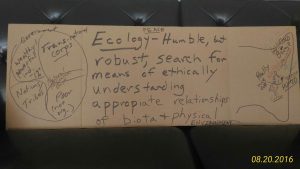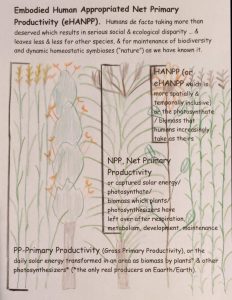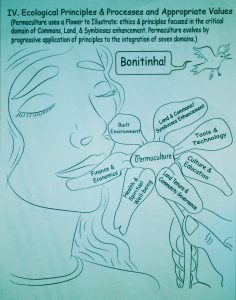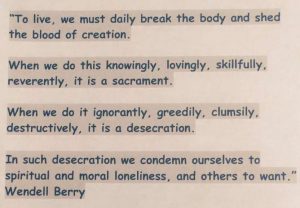http://www.ctahr.hawaii.edu/LittonC/PDFs/301_EcologicalPrinciples.pdf
Ecological principles and processes, and critical thinking and appropriate actions?? …
Read “The Lorax”. And take heed.
But after this, continue to learn about the need to live in concert with Nature. Learn from her in all her simplicity and complexity.
First and foremost, always and everywhere study and view life through lens of:
• soil biology, hydrology, and energetics;
• food webs and ecological succession;
• the Second Law of Thermodynamics;
• net primary productivity;
• ecological hierarchy, population and ecological community dynamics, and carrying capacity;
• climatology; and
• biogeochemical cycling.
Then proceed to deepen this with knowledge of physics, animal behavior, psychology, human sociology, politics and community-organizing and activism. (And of course in order to begin and continue development of all of the above, we all have to develop communication skills in languages like English, Mandarin, Spanish, mathematics, and computer language(s).)
Without a strong foundation and continuing curiosity and learning about principles and processes of ecology, critical thinking and action are impossible. Moreover, without this ecological knowledge, creative thinking and action can be very dangerous! Ecology across curricula and campuses of schools, businesses and other social organization entities, and continuing learning of ways to realize Positively Ethical Applied Community Ecology is essential for quality life for as many as possible for as long as possible. It is needed for learning how to lower individual and collective ecological footprints of the haves of the world, and redistribution of power to the have nots (both human have nots and other species) and get on with the journey to quality life for all.
By the way, this ecological education should be:
• Hands on! Mostly outdoor in Nature!
• Participatory with robust interactions with other humans and other components of local community!
• “Slow!” and “Small!”/Holistic and global!
It should enhance sense of place, community, history, arts, culture, and spirituality.



